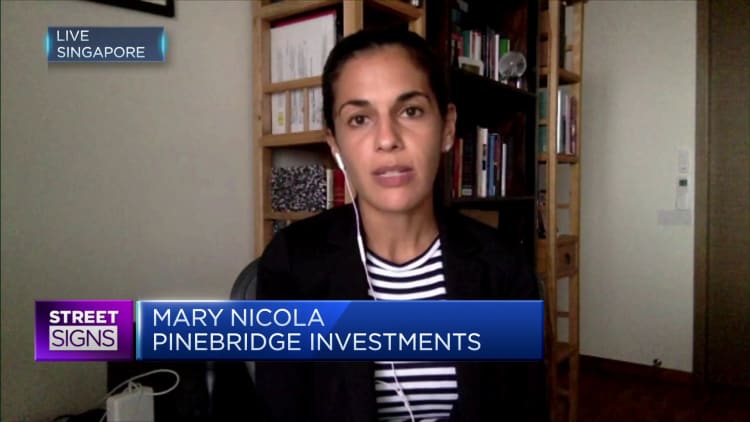Asia-Pacific markets traded lower on Tuesday after major indexes on Wall Street finished their worst day since June amid mounting rate hike concerns.
Hong Kong's Hang Seng index was down 0.78% in the final hour trade. The Shanghai Composite closed fractionally lower at 3,276.22 and the Shenzhen Component fell 0.404% to 12,455.15.
Japan's Nikkei 225 fell 1.19% to 28,452.75, and the Topix traded 1.06% lower to end the session at 1,971.44. South Korea's Kospi was down 1.1% at 2,435.34. S&P/ASX 200 declined 1.21% to 6,961.8.
Singapore's consumer price index climbed to 7% year-on-year, the highest level in 14 years, as food, electricity and gas prices rose. Global inflation is likely to stay elevated "for the next few months," the central bank said in a statement.
Overnight on Wall Street, the Dow Jones Industrial Average tumbled more than 600 points in its worst day since June, as the summer rally fizzled out and fears of aggressive interest rate hikes returned to Wall Street. The S&P 500 also tumbled 2%.
"There was a big hit to risk appetite in what was a night devoid of any top tier data. Instead markets are apprehensive ahead of US Fed Chair Powell's Jackson Hole speech," Tapas Strickland of National Australia Bank said in a Tuesday note.



